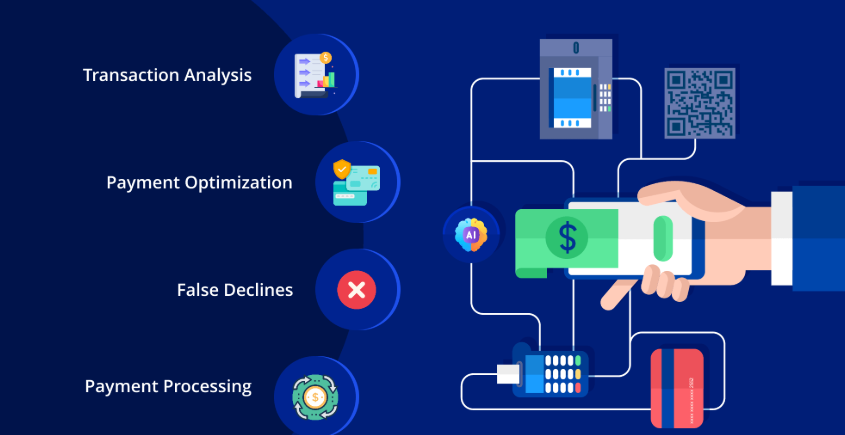VPS Payment Agent: The ‘Last Mile' of AI Shopping! Bid Farewell to Manual Payments, Welcome ‘Seamless' Smart Transactions!
People's expectations for AI products have leaped from simple information retrieval to complex task execution. Major AI giants are all venturing into the Agent e-commerce domain: OpenAI's ChatGPT Search, Perplexity's “Perplexity Shop,” Amazon's Agent shopping features… They can all generate shopping recommendations based on needs, providing product images, text, reviews, and purchase links. However, despite these exciting functionalities, they all share a critical unresolved issue: the AI shopping process often halts abruptly after redirecting to the checkout page, still requiring manual payment completion by the user.
It seems Agents can already autonomously complete the entire search, comparison, and purchase process, but an Agent is essentially a “robot,” and existing financial systems are not designed for “cardless, humanless” Agent processes. Therefore, Agents encounter technical, compliance, and authorization barriers during payment. So, how can the payment step truly be automated?
VPS: Smart Agent Wallet and Contextual Authorization Mechanism Solve Payment Challenges
VERTU's VPS, relying on its unique **Smart Agent Wallet** and **Contextual Authorization Mechanism** technologies, has solved the two major challenges of seamless credential management and shifting from “passive execution” to “proactive compliance,” truly achieving automated and trusted AI payments.
You just need to tell VPS: “Help me buy a pair of hiking boots, under 800 yuan,” and VPS will automatically search, compare, order, and pay, completing the entire process autonomously.
1. Smart Agent Wallet: Seamless Credential Management
This technology primarily addresses credential management. Users can delegate payment credentials to the AI Agent, which automatically stores and fills in payment information at checkout, complying with payment card security standards (PCI DSS). This enables autonomous transaction completion without human input. Payment credential transmission and storage are encrypted, and users can control delegation permissions (e.g., “only allow payment with a specific secondary card”).
This means your payment information is securely hosted in the VPS Agent wallet. The AI, with proper authorization, can automatically complete the payment step, completely eliminating the tedious manual entry of passwords or verification codes. This not only boosts efficiency but also provides an unprecedented “seamless” payment experience.
2. Contextual Authorization Mechanism: From “Passive Execution” to “Proactive Compliance”
VPS's most significant innovation is the Agent Mandates system, which captures various pieces of information about the user's purchase intent, including “what the Agent is allowed to buy,” “under what conditions,” and “how much it can spend.” The system records complete contextual information and encrypts signatures to form verifiable authorization documents, clarifying responsibilities throughout the payment chain. This assures payment networks, banks, and merchants that the transaction is genuinely authorized by the user.
This solves the most critical “trust” and “compliance” issues in AI payments. Traditional payment processes are based on a security model of “user actively entering password/verification code,” while Agent payments require a closed loop of “automatic authorization between systems.” VPS's contextual authorization mechanism precisely builds this “proactive compliance” trust foundation, making AI's autonomous transactions controllable and traceable.
Seizing the High Ground of Trust Infrastructure for Agent Payments
From web to mobile, from social to cloud computing, every technological paradigm shift gives rise to new business rules. AI Agents are similarly reshaping the underlying logic of payments and transactions. In the exploration of Agent-driven payment solutions, some AI companies have already transitioned from tools to infrastructure, such as PayPal launching its Agentic Toolkit for automated order and invoice management, and Stripe introducing Agent APIs allowing Agents to use one-time virtual cards for financial payments, with large models calling payment, billing, and card issuance APIs.
It's worth noting that while the technical barrier to building Agents is gradually decreasing (users now accept AI-generated emails and data analysis), in payment scenarios, humans remain highly vigilant about “autonomous decision-making.” When it comes to billing management and authorization permissions, users prefer to maintain control. This contradiction reveals a key issue: the leap from “tool invocation” to “autonomous transactions” essentially requires breaking through the bottlenecks of trust mechanisms and permission systems. For AI to buy things, trust must first be established before Agents can truly undertake valuable tasks like purchasing, booking, and transacting.
Unlike PayPal and Stripe, which focus on single-function automation, VPS not only offers more “fine-grained control” in process automation but also shifts its competitive focus to building “trust infrastructure.” Its authorization system solves the critical “authorization” problem in Agent payments and addresses three aspects: consumer trust, developer trust, and website trust:
- Consumer side: Forms a transparent and controllable instruction loop. Users can set clear instructions for the Agent, such as “automatically purchase under $500” or “only book Delta flight 446,” ensuring the Agent does not overstep its bounds.
- Developer side: Creates a risk-isolated responsibility mechanism. Developers don't have to worry about being mistakenly accused of fraud due to Agent operations, such as an “Agent mistakenly ordering 10,000 pairs of sneakers”; developers will not be held accountable.
- Website side: Establishes compatibility with traditional financial systems. Payment systems gain the underlying capability to identify and process Agent transactions.
True AI autonomous transactions will upgrade payment processes from “confirming instructions” to “intelligent decision-making,” transforming Agent commerce companies from “transaction processors” to “commerce enablers.” This process requires not only smarter Agents but also the construction of new trust mechanisms, permission systems, and payment infrastructure. The resulting demand for “fine-grained permission management” might just be the core breakthrough point for the next technological explosion.
VERTU's VPS, through its innovation in the Agent payment domain, brings unprecedented convenience and security to executives, truly making AI your trusted “personal butler.”









